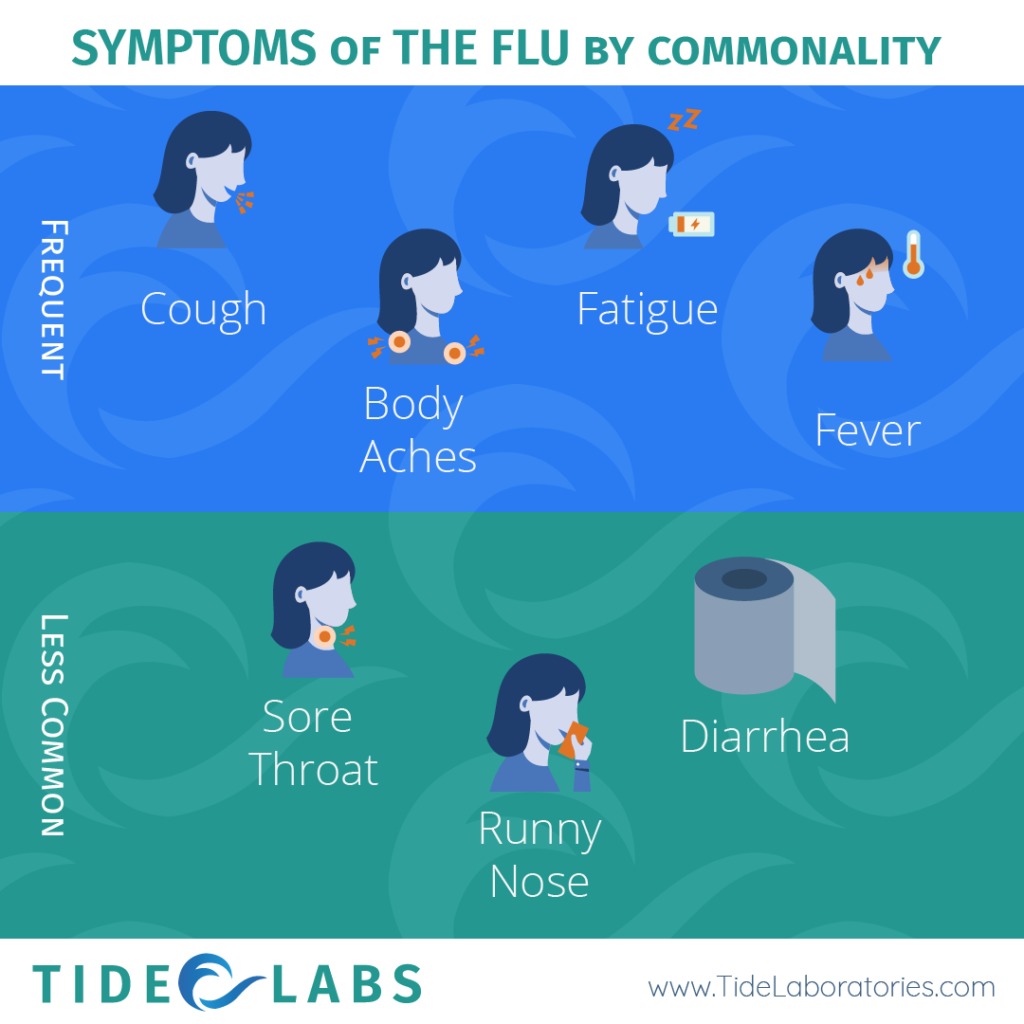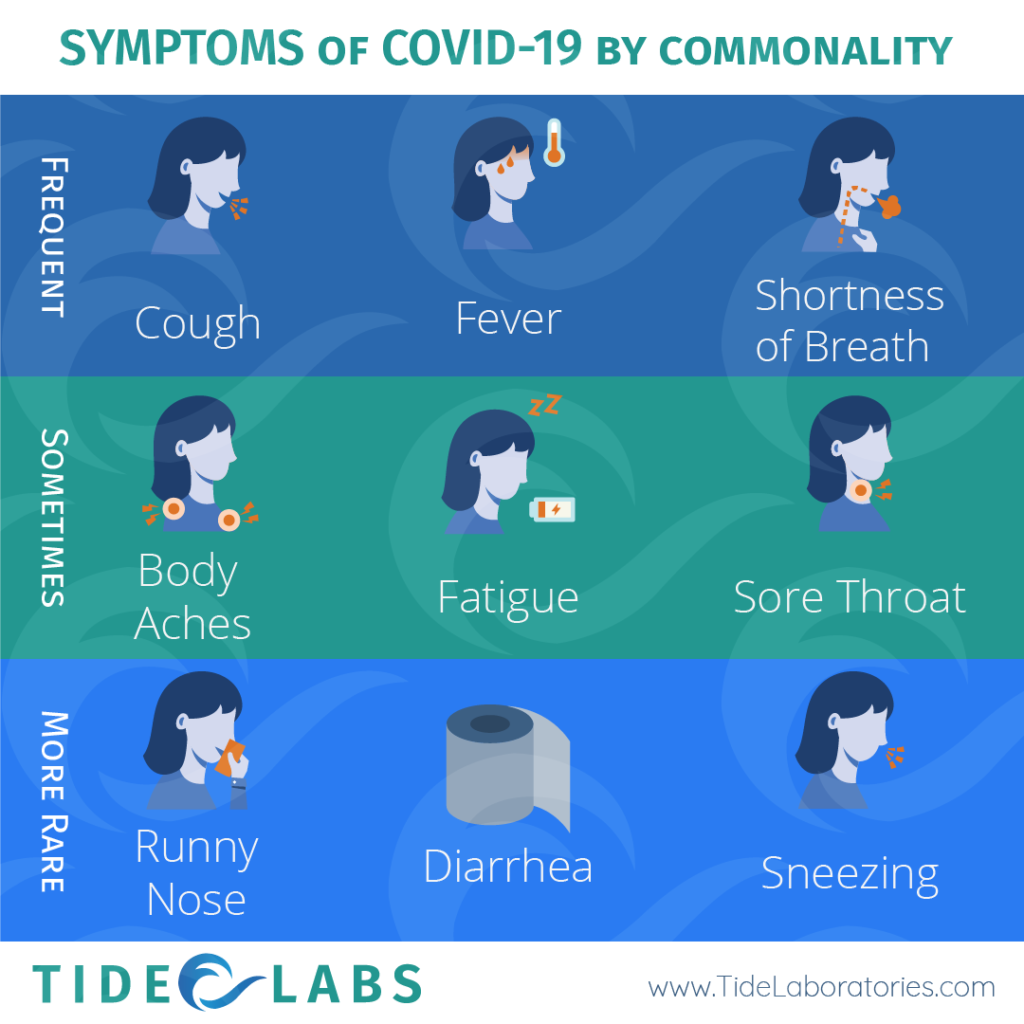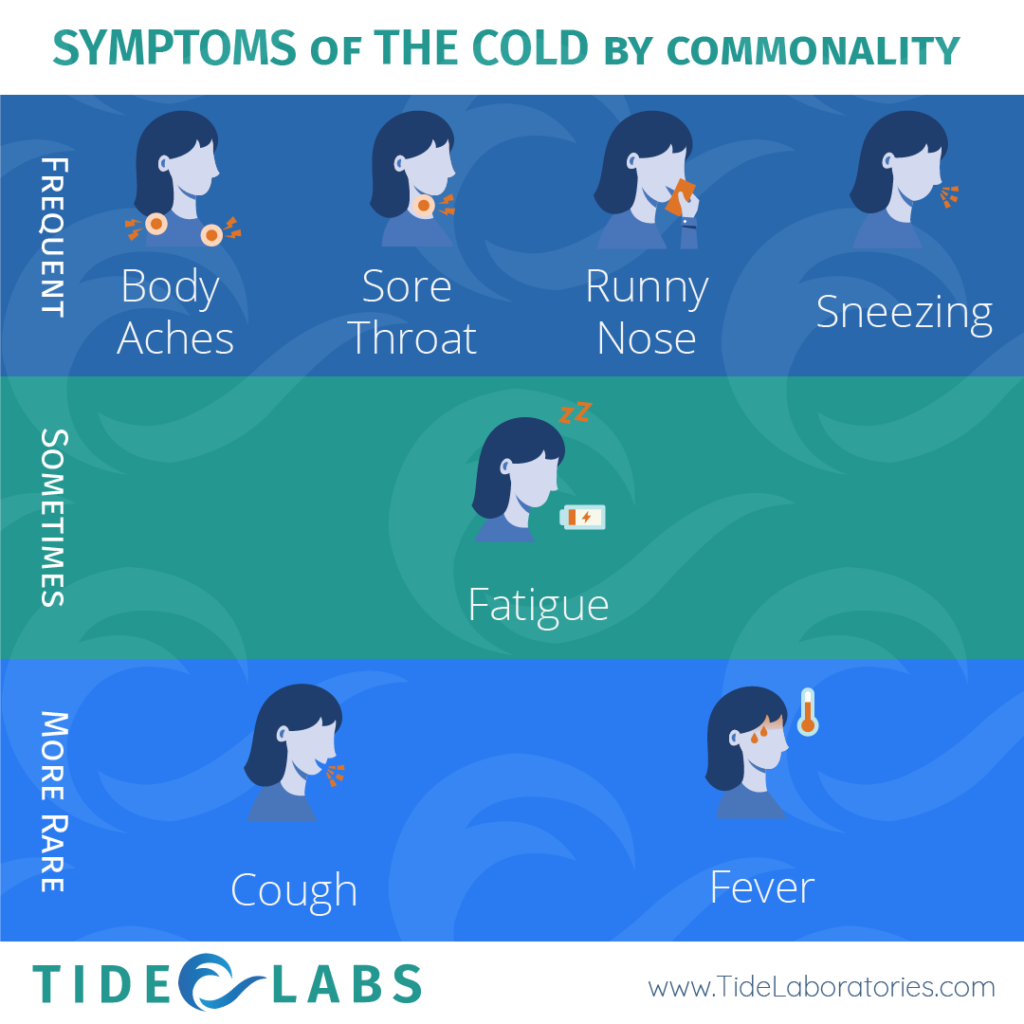
Is it COVID-19 or Just a Cold?
Symptoms that may not have caused much alarm this time last year are having a bigger impact now that the new strain of coronavirus, COVID-19 (SARS-CoV-2), is in the world. A cold is simple to get over and won’t have much of a lasting impact. Influenza cases are on the rise as the temperatures change, and while more difficult to heal from than a cold, the flu is much less lethal than COVID-19 has proven to be.
So, which do you have? Let’s review the symptoms, but to be absolutely certain we recommend contacting us for a COVID-19 test.
Symptoms Shared Across the Cold, the Flu, and COVID-19
If you are experiencing the below symptoms, in any level of severity, you may have either a cold, the flu, or possibly coronavirus:
- Sore throat or cough
- Shortness of breath or difficulty breathing
- Congestion or runny nose
- Body or muscle aches
- Fatigue (tiredness)
- Headache
- Fever or chills
- Some may experience vomiting and diarrhea (more commonly children)
Normally we can differentiate between a cold and the flu based on the severity of symptoms. However, due to the coronavirus’s symptoms being anywhere from non-existent to life-threatening in severity, there is an extra layer of complexity.
Symptoms Unique to the Common Cold
The best-case scenario is that you have a minor cold which will go away on its own. Symptoms of a cold usually peak within 2-3 days after catching it. Below are symptoms unique to the common cold:
- Watery eyes
- Post-nasal drip
- Sneezing
Less likely to experience the following shared symptoms:
- Fever
- Very unlikely to be causing vomiting or diarrhea
Unlike the flu, colds do not usually develop into more serious health problems that lead to hospitalization (such as pneumonia or bacterial infections). Additionally, cold symptoms tend to be milder than those caused by influenza.
Symptoms of Influenza vs Common Cold
In the event that you are experiencing symptoms that are too severe to be a simple common cold, you may have the flu. Influenza is more dangerous than the common cold and can lead to severe respiratory complications, hospitalization, or even death.
 Symptoms of the flu, but not the cold:
Symptoms of the flu, but not the cold:
- Fever or feeling chills
- Nausea or vomiting
- Diarrhea (more common in children than adults)
Compared to the common cold or coronavirus, symptoms of the flu develop rapidly. You may recover from your flu symptoms within two weeks or as soon as a few days. It is recommended you receive a yearly flu shot to lower your risk of being infected with the influenza virus.
Symptoms Unique to COVID-19
 There are very few symptoms that are unique to COVID-19 and which would not be experienced for a common cold or more serious flu. There are two main symptoms to look out for:
There are very few symptoms that are unique to COVID-19 and which would not be experienced for a common cold or more serious flu. There are two main symptoms to look out for:
- Shortness of breath
- Loss of smell or taste
The shortness of breath experienced is similar to asthma in that it feels like you can’t get inhale to your lungs’ full capacity or may feel like you are breathing through a straw. There have been instances of a reduced sense of taste or smell when experiencing severe symptoms of the flu, but that decrease in sensation does not last as it would in the case of coronavirus infection.
What To Do If You Feel Sick
Self-quarantine to prevent yourself from infecting others. Even if you only have a common cold, be sure to stay away from groups, wear your mask, wash your hands often, and use hand sanitizer. If you begin experiencing symptoms shortly after receiving a flu shot, it’s most likely a reaction to the shot and you should be feeling better within a few days. If your symptoms last longer than 2 weeks or become severe in a short amount of time you should contact your doctor about being tested for COVID-19.
Be sure to call ahead to explain your symptoms before visiting a doctor’s office, an urgent care facility, or the emergency room. Healthcare providers will have special safety measures in place to deal with the highly contagious coronavirus strain which are very important to follow.
Due to the risk of being an asymptomatic carrier of COVID-19 all members of the household with a potentially infected individual should take extra precautions and self-quarantine as possible.











